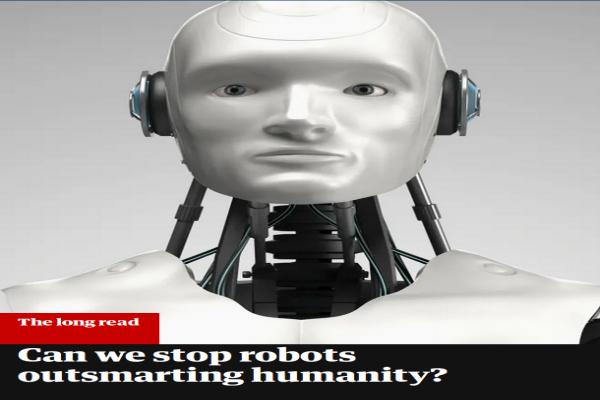It seems we need four more Asimov's laws
OK, but… for whom? Robots, or something else?
A leading expert in the emergent field of Artificial Intelligence (AI) law argues it’s high time to update the three laws of robotics.
The original Three Laws of Robotics
The three laws of robotics were conceived by science-fiction author Isaac Asimov in 1942, and since then have been considered “the most influential science fictional lines of tech policy ever written”. Those thre laws state that:
- A robot must not harm humans, or, via inaction, allow a human to come to harm.
- Robots must obey orders given to them by humans, unless an order would violate the first law.
- Finally, a robot must protect its own existence, as long as doing so would not put it into conflict with the other two laws.
The proposed four new Laws of Robotics

The expert interviewed in that post argues that Asimov’s laws should be expanded to include these four new ones:
- Digital technologies ought to “complement professionals, not replace them.”
- AI and robotic systems “should not counterfeit humanity.”
- AI should be prevented from intensifying “zero-sum arms races.”
- Robotic and AI systems need to be forced to “indicate the identity of their creators(s), controller(s), and owners(s).”
To know why he says so, read that post, it’s worth it. Because here, I have another point to make, about exactly those four, or seven, laws.
WHO should be subject to laws like these?
Today, corporations have personhood, just like human beings. But corporations are immortal, ubiquitous and (legally and financially) super-strong. They are much less similar to humans than to robots, which (rightly) have NO personhood (1). It is corporations that should have first, instead of personhood, laws like the laws of robotics.
Take the seven laws above, old and new, plus the title in the screenshot above, and replace every occurrence of “robots” or “AI” with “corporations. You will see that they’ll make even more sense, and be more urgent, than the original versions. Because Artificial Intelligence has been with us for centuries, just under another name.
- If robots had personhood, it would perpetuate the assumption that even corporations are entitled to it
Who writes this, why, and how to help
I am Marco Fioretti, tech writer and aspiring polymath doing human-digital research and popularization.
I do it because YOUR civil rights and the quality of YOUR life depend every year more on how software is used AROUND you.
To this end, I have already shared more than a million words on this blog, without any paywall or user tracking, and am sharing the next million through a newsletter, also without any paywall.
The more direct support I get, the more I can continue to inform for free parents, teachers, decision makers, and everybody else who should know more stuff like this. You can support me with paid subscriptions to my newsletter, donations via PayPal (mfioretti@nexaima.net) or LiberaPay, or in any of the other ways listed here.THANKS for your support!